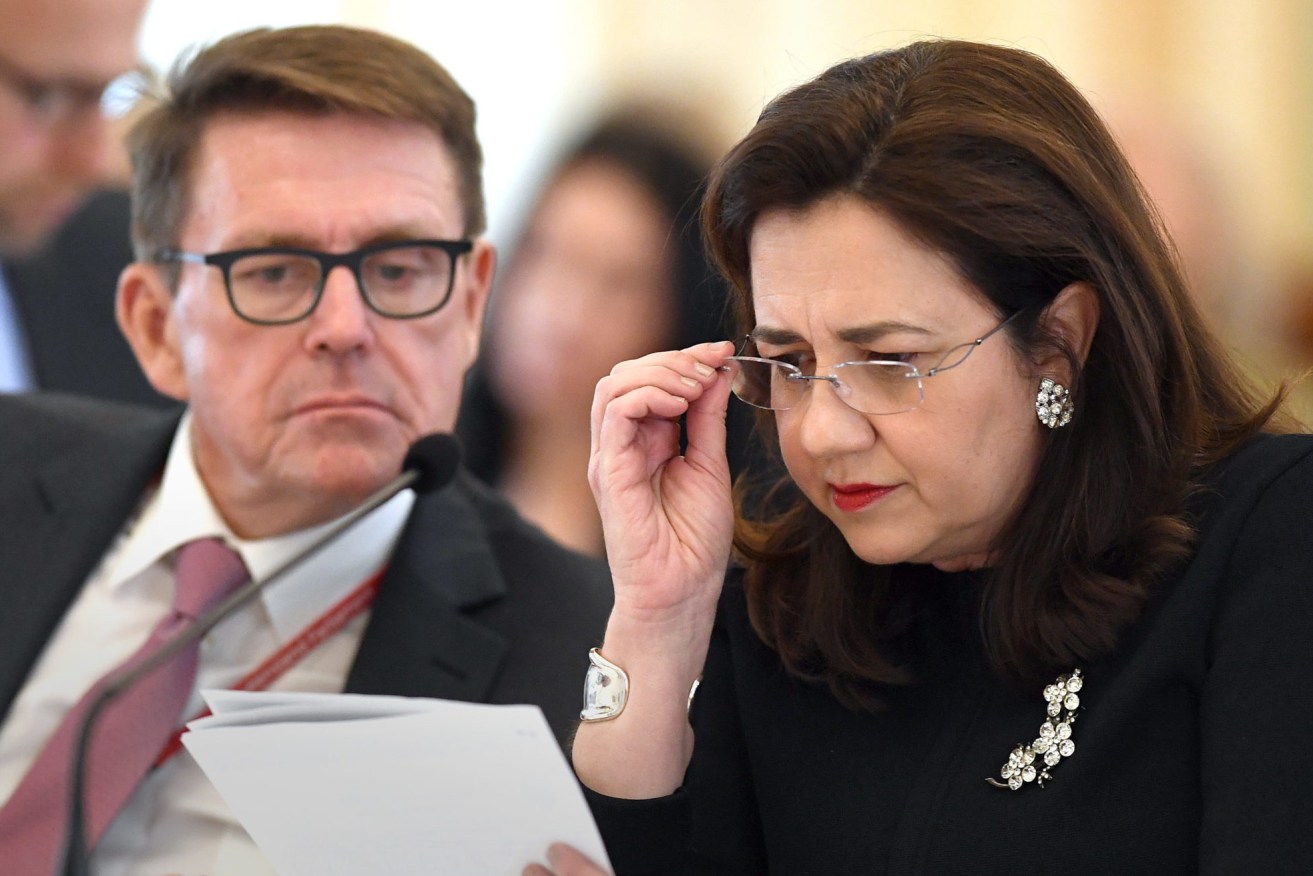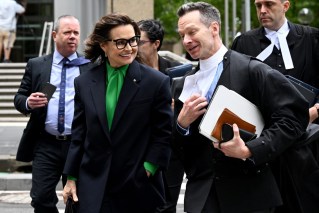Integrity iceberg: Hunters, gamekeepers and the blurred lines of ‘incidental lobbying’
Two key issues go to the heart of the Queensland Government’s integrity debate, and they both reflect the undermining of a once-powerful public service, writes Elliot Stein.

Premier Annastacia Palaszczuk fronts parliamentary estimates with her former director-general, Dave Stewart. Her government has introduced 28 administrative arrangement orders since it was elected in 2015. (Photo: AAP Image/Dave Hunt)
Much has been made about integrity matters in and around the Queensland Government in recent weeks.
Watching and carefully reading all that has been written about these matters it’s felt more like a poorly translated foreign film than a prosecution of a major substantiated crisis. All the words were there for sure but none of the substance.
With each article or breathless press conference I’ve waited to see just one thing – an identifiable verb. A single sentence or statement constructed that would tell me exactly what the issue was.
Call me old fashioned but an integrity crisis used to require something occurring.
The reality is the debate raged on the tabloid news sheets and mainstream media outlets has proven the exception to the old adage about the relationship between smoke and fire. Deputy Premier Miles was right to describe the debate as more of a Dennis Denuto hunt for a “vibe” than a sustained set of accusations.
It has been easy to be dismissive of the flimsy, politically motivated hunt for relevance that’s characterised the so-called integrity debate. However, even if the most recent debate has been devoid of any obligation to tether itself to reality, it is right to expect and seek out the highest levels of integrity of the Government of the day.
Professor Coaldrake’s tasking from the Government to review the culture and accountability of the public service is a sensible response to ensuring that government – any government – continues to have a public service that is fit for service and reflective of best practice. On the backdrop of rapidly evolving technology, this review will be complementary to the 2019 Bridgman Review into modernising industrial arrangements for the public service.
There are two areas that are ripe for reflection by the short, sharp review from Professor Coaldrake.
The first is capturing the entire iceberg of external public policy engagement with our governments.
There will always be commercial interests seeking the ear of the government of the day. It is incumbent on government to appropriately manage and regulate those interests with proportionate transparency. Queensland is a national leader is ensuring that third party government relations folk – lobbyists – are registered, observe a two year pause after leaving government, and publicly record all interactions with government.
There is no policy rationale to justify excluding the vast majority of external contact with government where it is designed to influence or input into a policy change. There is no such thing as incidental lobbying. It should all be all recorded and disclosed equally.
The second, and harder challenge for governments around Australia is to tackle head on the significant hollowing out of the public service under successive administrations. A weaker, less trained, less capable public service results in a greater reliance on contracting out core government services to private entities.
The state and extent of contracting out today is widespread. Large accounting firms, so called tier two agencies, are performing basic government services while maintaining corporate and naturally profit-driven clients of their own. In short – the public service these days is much better described as a hybrid of William Street and Eagle Street than a dedicated standalone service.
To make the point more clearly – when large consulting firms are simultaneously working for government and lobbying into government for their undisclosed corporate clients, there is a risk.
The Integrity Commissioner defines this as ‘incidental lobbying’. We disagree. All third-party clients of major consulting firms should be disclosed, reported, and contact on their behalf registered publicly. You can’t have the same firms write the policy and seek to influence the outcomes.
The challenges of restoring a built-up, qualified, and long-term public service requires hard thinking and sustained reskilling. Those seeking to whip up the rhetoric of integrity matters would be better suited to engage on this tougher question.
Elliot Stein is a Director of Hawker Britton, a Labor-aligned national government relations company. He is appearing today as a witness to the Queensland Parliament inquiry into the functions of the Integrity Commissioner.












